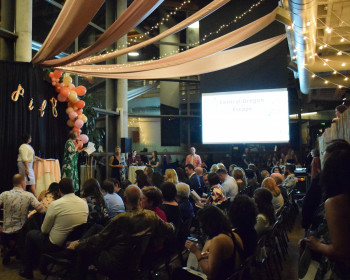Frances Nguyen
2012
Open gallery

I spent this past summer working for the Asian American Legal Defense Education Fund (AALDEF). AALDEF’s mission is to promote and protect the civil rights of Asian Americans. AALDEF serves its mission in various ways, from litigation, advocacy, education, to community organizing. During the summer, I was assigned to work in two areas: human trafficking and community health care.
For the community health care project, I learned about how hospitals were implementing language assistance programs for patience with limited English proficiency (LEP). Hospitals are mandated by federal, state, and local regulations to provide language service for LEP persons. For example, patients have a right to an interpreter free of cost. If a patient is not offered language assistance, then this could potentially be discriminatory based on the patient’s national origin and be a denial of Title XI under the Civil Rights Act. I spent a significant amount of time in Brooklyn and the Bronx on fact finding missions to see if hospitals in those boroughs were complying with Title XI as well as state and local statutes. It was an eye opening experience and it gave me insight to see how neighborhoods were accommodating with the recent influx of recent immigrants, particularly from the South Asian and Chinese communities. It also gave me a terrific opportunity to interact with the locals and affirm the importance for hospitals to provide effective language assistance to LEP patients.
Whereas the community health care project focused on community organizing and legal research, my work in human trafficking involved more work in litigation and client interaction. Trafficking is a complicated issue. Due to the criminal and immigration implications, a myriad of diverse parties are frequently involved to assist the victim, such as law enforcement, social workers, and attorneys. AALDEF works to help trafficking victims seek restitution in civil suits as well as helping victims to obtain a T-Visa so they can remain in the United States. My attorney supervisor had me participate in various projects so I could learn more about human trafficking. I sat in on city council meetings as city council members debated on anti-trafficking bills. I attended and met with attorneys, social workers, and law enforcement officers as they discussed ways to combat human trafficking. I also conducted intakes with human trafficking victims. The more I learned about human trafficking, the more I realized how nuanced the issue is and how it must be addressed in a balanced yet effective manner.
Overall, I feel grateful to Lewis and Clark for giving me an incredibly opportunity through PILP to spend a summer working for AALDEF. Interning at AALDEF has galvanized my interest in public interest law, particularly to serve immigrant communities. Immigrants who arrive to the United States usually are more vulnerable due to limited language proficiency in English and lack of awareness of their rights. That vulnerability can potentially lead to exploitation and can manifest in various ways. Examples can span from a denial of language assistance access when they seek medical treatment or facing an abusive employer in a labor trafficking case. Situations like these reaffirm the importance of public interest attorneys who can serve these communities to protect and advocate for their rights. Thanks to PILP, I am one step closer to becoming that attorney. Thank you.
More Public Interest Law Project (PILP) Stories
Public Interest Law Project (PILP) is located in McCarty Classroom Complex.
MSC: 51
email pilp@lclark.edu
voice 503-768-6782
fax 503-768-6729
President: Natalie Hollabaugh
Auction Directors: Faith Fox & Hanah Morin


